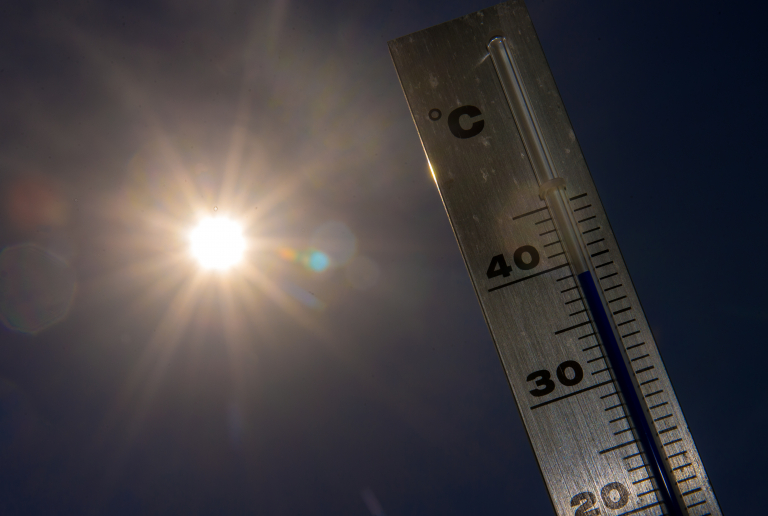As world temperatures rise, experts predict more heat wave deaths by 2080

Image: AFP/Philippe Huguen via AFP Relaxnews
In the first global study to predict future heat wave-related deaths, researchers have found that if we cannot adapt to rising temperatures around the world, deaths from heat waves will rise steadily by 2080, especially in tropical and subtropical regions, as well as Australia, Europe and the United States.
Led by a team from Monash University, Australia, the researchers developed a model to estimate the number of deaths related to heat waves in 412 communities across 20 countries between 2031 to 2080.
They predicted the mortality rate for various scenarios, taking into account different levels of greenhouse gas emissions, preparedness and adaption strategies, and population density across these regions.
The results showed that if humans do not adapt, heat wave-related deaths are expected to increase the most in tropical and subtropical countries or regions, with European countries and the United States expected to have smaller percent increases in heat wave-related deaths.
The team noted some examples, with the worst-case scenario showing that Colombia could expect an approximate 2,000 percent increase in heat-related deaths between 2031 to 2080 compared with 1971 to 2020, and Moldova a 150 percent increase. Three Australian cities — Brisbane, Sydney and Melbourne —would see a 471 percent increase in deaths caused by heat waves.
If we do manage to adapt to the rising temperatures, heat wave-related mortality is still expected to increase across all regions, though the increase would be much smaller. Moldova and Japan would not see any increase.
Many countries have already experienced heat waves this year, with reports of record temperatures, humidity, and wildfires as well as deaths and heatstroke-related illnesses.
Study lead author and Monash associate professor Yuming Guo said the recent media reports highlight the importance of the new heat wave study.
“Future heatwaves in particular will be more frequent, more intense and will last much longer,” Guo said. “If we cannot find a way to mitigate the climate change (reduce the heatwave days) and help people adapt to heatwaves, there will be a big increase of heatwave-related deaths in the future, particularly in the poor countries located around the equator.”
Study co-author associate professor Antonio Gasparrini, from the London School of Hygiene & Tropical Medicine, added that it is thought heatwaves have been responsible for tens of thousands of deaths since the beginning of this century, including in regions of Europe and Russia. However, he added, “The good news is that if we mitigate greenhouse gas emissions under scenarios that comply with the Paris Agreement, then the projected impact will be much reduced.”
The results were published in PLOS Medicine. JB
RELATED STORIES:
Africa’s iconic baobab trees dying off at alarming rate